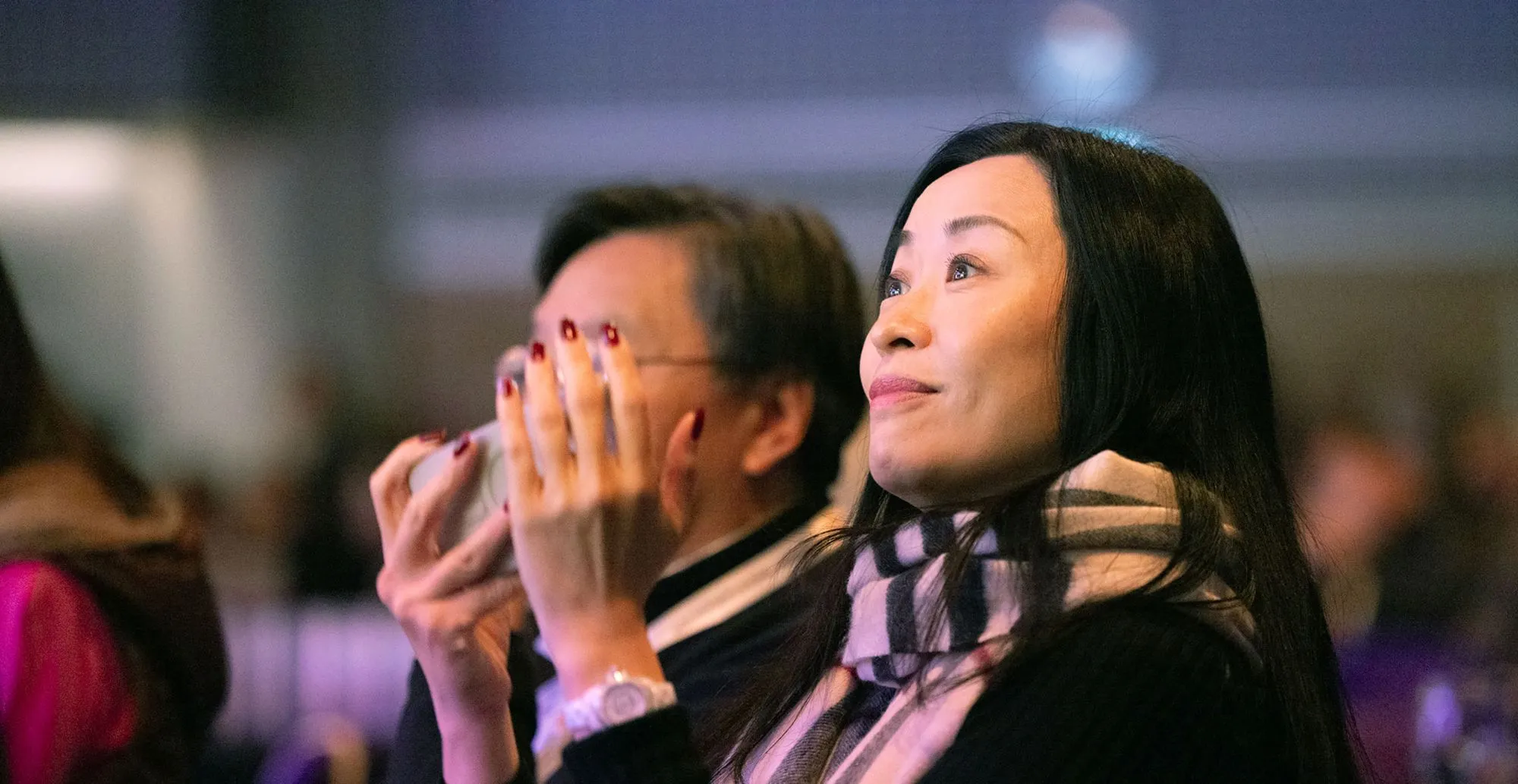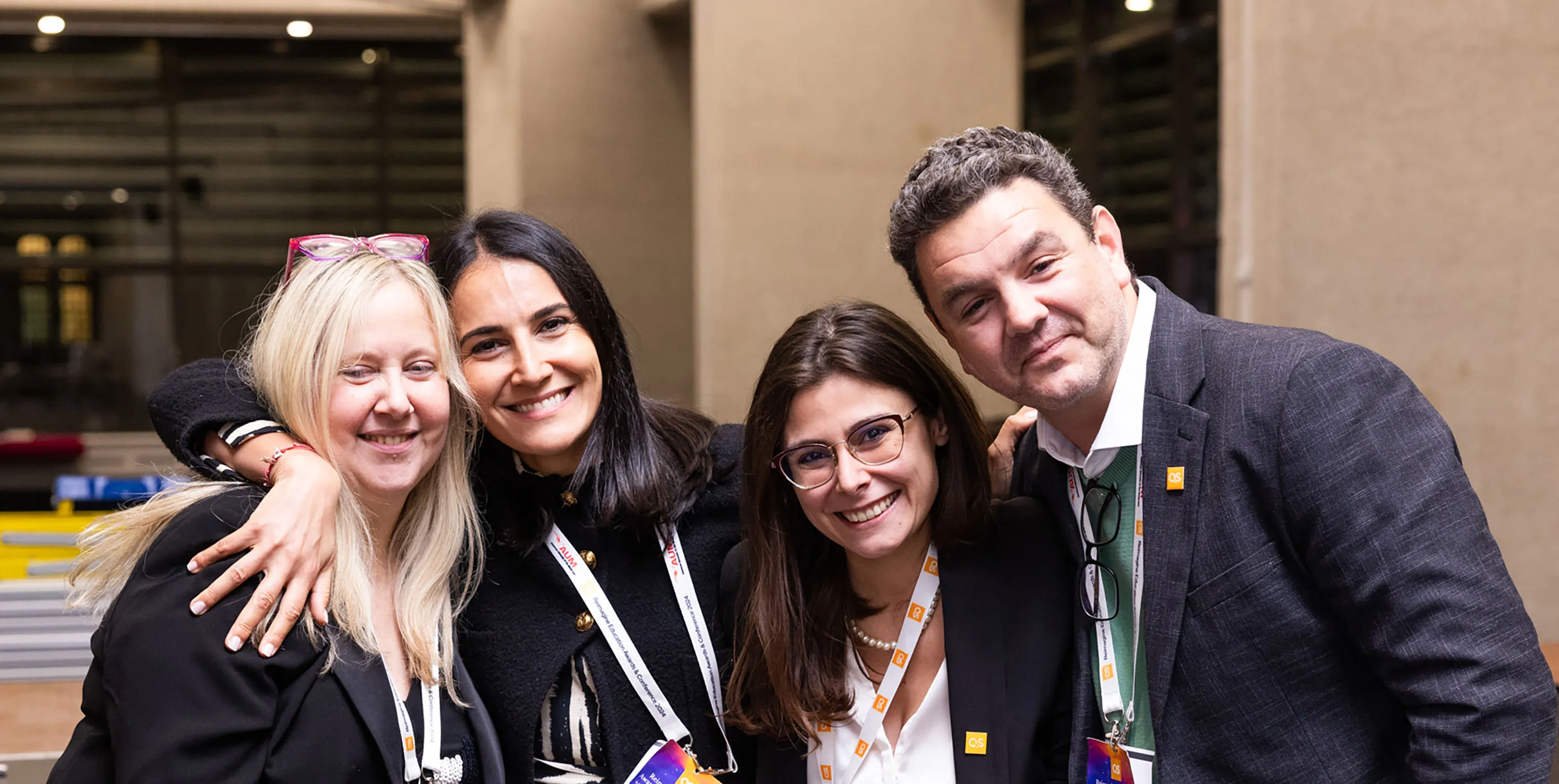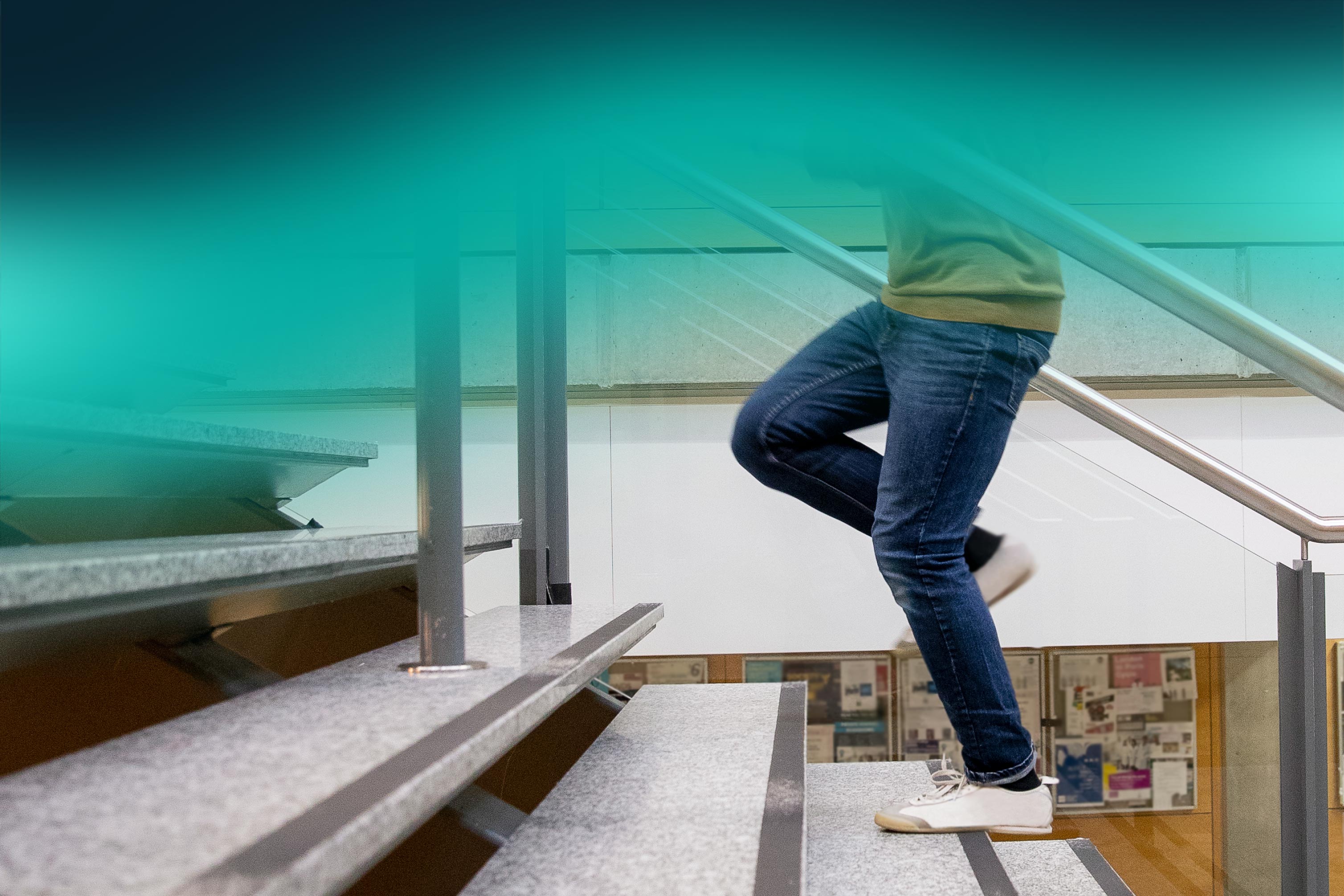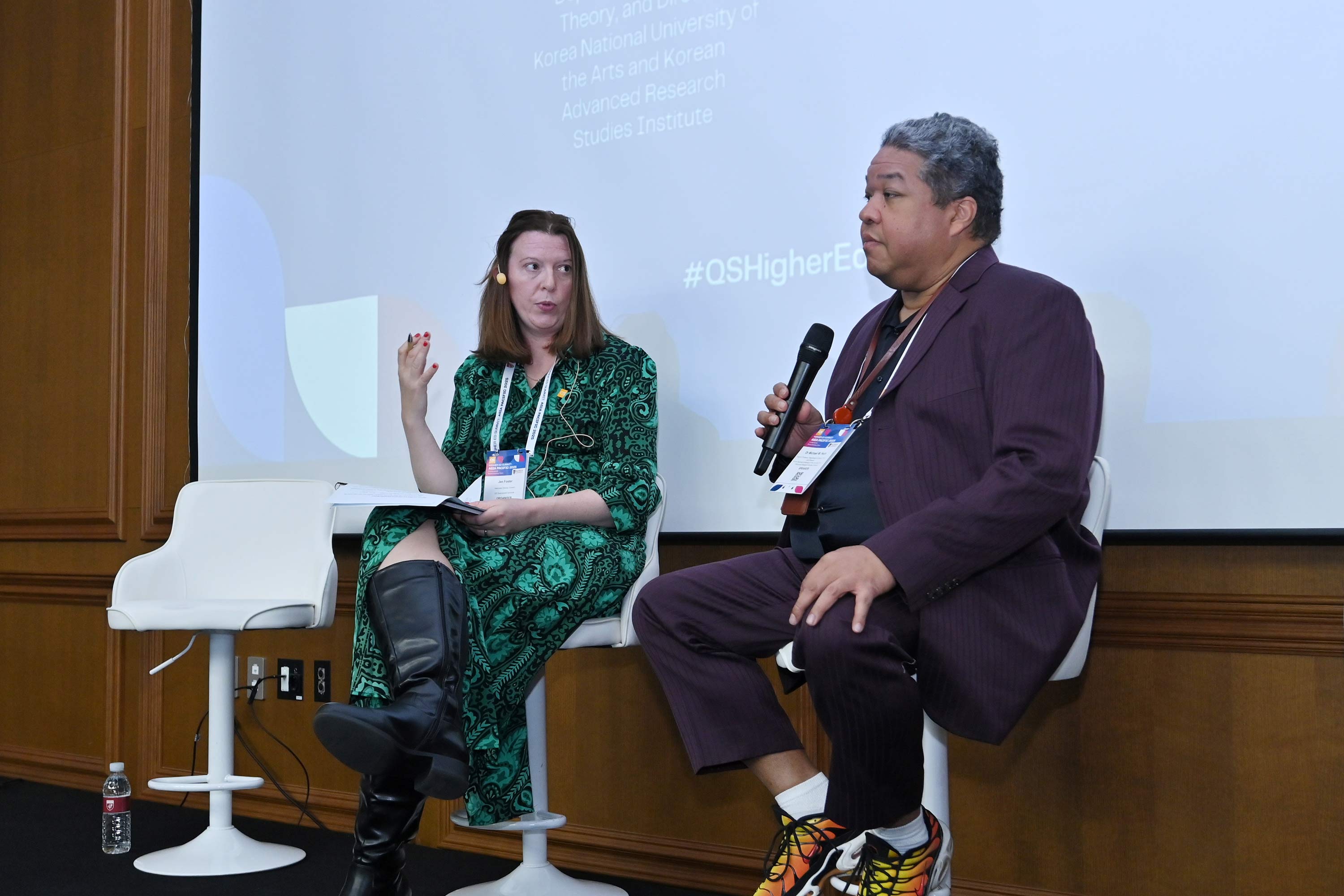At QS Higher Ed Summit: Asia Pacific, we were delighted to welcome Ban Ki-moon to deliver the opening remarks. At our largest-ever QS conference, Ban Ki-moon highlighted the importance of education in facing the interconnected challenges society faces. Read his full transcript below, or watch the speech in full.
Full speech transcript
Honourable President Kim Dong Won of Korea University, Honourable Senior Vice President Ben Sowter of QS Quacquarelli Symonds, esteemed leaders of higher education, excellencies, ambassadors, distinguished guests, ladies and gentlemen.
It is both an honour and privilege for me to join you today for the QS Higher Education Summit: Asia Pacific 2025. I extend my heartfelt appreciation to Korea University and QS for organising this truly meaningful gathering. I am also commending their tireless commitment to advancing global dialogue on higher education. In this regard, this summit couldn't be more timely and opportune.
This year marks the 120th anniversary of Korea University – an extraordinary milestone that celebrates more than a century of guiding academic excellence, leadership, and service to society. Hosting this summit at such a time is thus deeply, deeply symbolic. It reflects not only the university's impressive global standing, but also the growing influence of Korean higher educations in shaping the future of both Asia and the world.
We also gather here in dynamic Seoul, which has been recently ranked the World's Number One most preferred city for international students, by QS.
I'm not surprised by such accolades, as Seoul embodies a unique harmony of education, innovation, and is a cultural ideal setting for this exchange of ideas and partnership between forward thinking global citizens.
This year's summit theme: Advancing Generational Potential: Skills and Partnerships in the Asia Pacific, could not be more important. Indeed, humanity today faces many complex interconnected challenges. These include climate change, inequality, public health crises, geopolitical tensions, and the relentless pace of technological transformation, including AI.
And no single nation or institution can meet these challenges alone. I have been repeatedly saying that there is not a single country, single individual in this world, however powerful, however resourceful one may be, United States, United Kingdom, Europeans, Japan, Korea, they cannot do it alone.
We have to join all our hands on the deck together. That's a hard lesson which I have learned during my tenure work as 8th Secretary General of the United Nations.
The answers lie in active collaboration across borders, across generations, across disciplines and more importantly, in quality education. I am a firm believer that I'm the product of quality education and hard work. This is what I've been speaking about to many young students of our younger generations, traveling around the world.
Having served as UN Secretary General for ten years, I have witnessed firsthand how profoundly independent our world has become. The crises we face are global, and so too must be our solidarity, our insight, our courage, and our action. As I said, we must work all together. At the heart of this effort stands the university – not merely as a cradle of knowledge, but as a moral compass and incubator of ethical leadership for future generations.
In addition, the Asia Pacific region is home to more than half of humanity. It is also home to the energy, creativity, and hope of countless young people eager to construct a better world. Our universities must therefore go beyond merely preparing students for jobs or knowledge. We must nurture in them critical thinking, empathy and ethical judgment, the essential foundation of true leadership, and most importantly, global citizenship.
You may be proud of your own nationalities. I'm proud to be a Korean, but Korea cannot do it alone. This is global citizenship. This is critical, as young people are not only the beneficiaries of the future but its architects. As such, our task is to empower them as global citizens who are able to collaborate, to innovate, and to act responsibly and sustainably on a global scale.
We now live in a hyper connected society where politics, economies, cultures, and ideas intertwine in real time. Yet, at the same time, we are all citizens of our nations and citizens of the world. I'm proud to be a Korean, but one needs to be a global citizen. This is my message to you, particularly to young students here.
UNESCO defines a global citizen as someone who actively promotes a more peaceful, tolerant, inclusive, secure, and sustainable society. To foster such citizenship, we must cultivate not only passion, but also compassion, understanding, empathy, and respect for others. This is a defining essence of global citizen.
If I may add one more context, some of you may know that in 1962, I had the unique privilege of meeting President John F Kennedy. I was a high school boy. I was one of 140 international students. There were four students from Korea. President Kennedy told us that there are no boundaries in this world, but there were so many strict boundaries between East and West, communist countries and democratic countries. We could not go beyond Korea much. But, he said “There are no national boundaries. The question is whether you are ready to extend your helping hand to others.”
This was striking to me even though I was just a 17-year-old high school boy. That was amazing. That has always given, at all times, direction. You must be a global citizen. I never expected that one day I would serve the United Nations as a Secretary General.
This is real global citizenship. So particularly young people who are attending this meeting, please bear in mind if you are proud of your Korean citizenship that before being proud Koreans, you are global citizens. This is the main message which I am now telling you.
I think our leaders at that time had some foresight that education – global education, higher education – is most important in Korea’s mobility. This is why I am standing before you. I'm telling you from my own experience. In 2012, during my time as UN Secretary General, I launched the Global Education First Initiative (GEFI). I knew that there are many resources: energy, water, oil, money, etcetera. But, I thought that to make our world prosper, that education should be the foundation.
I invited then former British Prime Minister, Gordon Brown and he agreed to my proposal, and I appointed him as my special envoy for the GEFI. That's how I worked very closely with UNESCO.
The United Nations placed education at the very top of the international agenda to promote global citizenship education worldwide. Since leaving office, I have continued this mission through I have established a foundation by namesake, Ban Ki-moon Centre for Global Citizens in Vienna. This was the first one, together with Heinz Fischer, Former President of Austria. Then in Seoul, I founded the Ban Ki-moon Foundation for a Better Future, one in New York and lastly in China.
Those are the organisations which I work on, together with global citizens and governments. These institutions are dedicated to spreading the values and virtues of global citizenship and promoting education for a sustainable future for all that leaves no one behind. It is very important that there should be no one left behind. We must go together.
Here today, Korea University stands proudly on 120 years of history and global vision, a shining example of this same guiding spirit. And in this Summit, Korea University is reaffirming its role as a bridge between East and West, North and South, between tradition and innovation, and between learning and action. Learning may be important, but action should follow.
This week, more than 1,500 leaders from across Asia Pacific, university presidents, vice chancellors, government officials, and education experts have all gathered at Korea University to attend this summit.
This is an invaluable opportunity to exchange ideas, forge partnerships, and inspire concrete actions. Above all, it reminds us that higher education is not the privilege of a few, but a shared responsibility of all humanity around the world.
Honourable presidents of universities, excellencies, ambassadors, distinct guests, ladies and gentlemen, young leaders, your role is absolutely pivotal. The discussions we hold today will extend far beyond academia. They will shape the future of democracy, the economy, and the various survival of our planet. To unlock generational potential, universities must create formal avenues for young people to participate in governance, research, and policy design.
Their voices, insights, and energy are not optional. They are indispensable. During my years at the United Nations, I witnessed how empowered youth can drive remarkable change. Indeed, young people approach problems with creativity, urgency, and courage. They are not fearful of anything. Universities must therefore see young people not as passive participants, but as true partners in shaping our future.
But education is not merely about preparing for the future. It is about creating it as well. As such, we must teach not only knowledge, but also values, empathy, and ethical leadership. We must help students think globally, act locally, and use their talents for the benefits of humanity and the planet. That is a true purpose of global citizenship education, and its very core lies in social sustainability.
This year also marks the landmark 10th anniversary of the UN 2030 Sustainable Development Goals with the 17 goals and the Paris Climate Change Agreement. Many people ask me, “what are you proud of during your time as a Secretary General?” One is that during my time, I was able to bring all the leaders – be they political, business, and civil society – to one place, one mind, and we agreed upon the Paris Climate Change Agreement. I mobilised all the resources, all the powers, and all the people to agree on 17 goals of sustainable development.
For the first time, I established UN Women, a ministry of women at the United Nations. There was a lot of pushback from the member states, because they said we don't have money to establish such a big organisation. But I pushed very hard. An ambassador accused me through a New York Times interview that “The Secretary General is not the king. The member states are not his subjects.” I never said that I was a king. There are some leaders in this world who seem to act like a king, but I am not going to name names.
I wanted to empower youth because they are going to be our leaders’ leadership. When it comes to youth empowerment, I was not that successful with UN Women. It is half done. I left it to my successor, but I'm afraid to tell you that it's still standing that that way. I sincerely hope that the United Nations will do much more for youth empowerment because they are the future leaders. Because our only hope is on their success, women and youth.
The harsh reality is that 17 percent of the Sustainable Development Goals are on track. There’s not much on track. Of 17 goals, just 17 percent. I advised to the current Secretary General of the UN, Antonio Guterres that “You must do much more.”
Furthermore, the goal of the Paris Climate Change Agreement was to limit the rise in the global average temperature within 1.5°C. The World Meteorological Organisation (WMO) has already announced that it has gone to 1.55°C.
I think it is temporary, so still we have time to work. This is why we must work together. If we fail to meet the climate goal, all of the other SDG goals lose meaning.
Along with education, we must all take action. We must do it now. Carbon neutrality will demand nothing less than a transformation of how we live, walk, and lead. If leaders change course based on convenience or short-sighted political gain, we will never build the due citizens envisioned by the SDGs and Paris Climate Change Agreement.
This is why I often urge young people to raise your voice. Challenge your leaders. Tell them that this is the world my generation and my succeeding generation will continue to live in. Please make sure that this world, during your time, is sustainable and climate friendly. I hope you will continue to follow this and demand action.
Be the generation that chooses courage over complacency. The world is yours, dear young people, young generation. As we look forward to the future, let us renew our shared commitment to build a more inclusive, resilient, and sustainable world for all through quality education and global citizenship. Let us empower our students not only to achieve personal success, but to fulfil their responsibilities as global citizens. Let us strengthen partnership among universities, governments, and industries so that our collective efforts may yield lasting impact.
For me, true leadership is not measured by ranking or titles, but now by how many lives we uplift, how much potential we unlock, and how deeply we contribute to humanity's progress.
By advancing generational potential, nurturing global citizenship and championing sustainability, higher education will continue to serve as a driving force of transformation in our time. I'm confident that the dialogue and commitment forged at this timely Summit will resonate far beyond this campus.
Indeed, they will reverberate across Asia Pacific and throughout the world. Together, let us ensure that the next generation lead us toward future that is better, fairer, and more peaceful and sustainable for all. Excellencies, guests, ladies and gentlemen, the Republic of Korea's national development journey is a testament to the transformative power of education.
From the ashes of colonisation and the Korean War, our nation has risen to become the world's 10th largest economy and the sixth largest trading partner, celebrated globally for its cultural production and artistic dynamism. Ours is the only nation in modern history to have transformed itself from an aid recipient into a donor country. This is unbelievable. Even I could not believe it, whether Korea is the only country to have turned to donor country from donor recipient. You can check the United Nations United record. Korea is the only one.
Ladies and gentlemen, Korea University and other leading educational institutions have sent forth generations of dedicated graduates who have powered and modernised our country, industrialising our country, and also democratising.
Their commitment continues to shape Korea's story and to inspire the world. The miracle of Korean education continues to this day right here in the spirit of creative disruption, breaking away from outdated conventions and rigid tradition. I hope, ladies and gentlemen, you will all seize this opportunity of today to experience firsthand the vitality and significance of Korean education.
Ladies and gentlemen, excellencies, once again, I extend my warmest of congratulations on the successful hosting of the QS Higher Education Summit: Asia Pacific 2025, and I wish good health and good fortune to all of the distinguished guests gathered here today. Let us work together to make sure that our world is sustainable and peaceful. That's my moral responsibility now. I don't have political responsibility.
So, when political and moral responsibility are conjoined, we will be proud to leave a Planet Earth to our succeeding generation that they will admire us for. Our fathers, grandfathers, grandmothers – they worked hard to make sure that our world would be sustainable and peaceful. Thank you very much for your attention. Thank you.









.jpeg)







.jpg)
